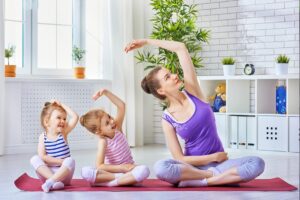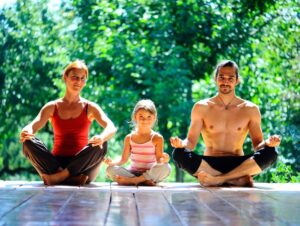Nowadays too much time in the education of children is given to external things. In the pursuit of developing abilities, we stop paying attention to the essence, to the development of inner qualities that make a person human, https://www.julianalucky.com/post/toddler-scooter-why-do-you-need-one.
Giving knowledge to an unarmed, soulless person is like giving a saber to a madman!
Д. Mendeleev
I am just one of those mothers who, even before the birth of a child, began to study the topic of upbringing and psychology in search of the perfect recipe. As soon as the firs

t child was born, the race for achievements began: to get up earlier, to get up earlier – to go – to run – to start talking etc. There are a lot of techniques now, each one is “the right one. What if I don’t make it to one year of age and it’s “too late after three. There was not enough time, but “if not me, then who? Such hyper-responsibility takes a lot of energy. But the result doesn’t always match the expectation. Obviously, the child grows and develops according to his or her own program. With the second child all these processes were even more confirmed, since what works with one often does not work with the second.
There was one case that helped me reconsider my view of parenthood. In crisis situations without belief in higher forces, karma and reincarnation, as it seems to me, you can go crazy if you believe that only your actions determine the outcome of events. When the children got whooping cough, my youngest daughter was 3 weeks old. This is the most dangerous age for the disease. And the peak of the disease comes in a few weeks. That is, you don’t know how events would develop, and you could only wait. My elder daughter was also sick, but it was easier with her, since she fell ill earlier, and by the time I realized what the disease was, the peak had already passed. But with my youngest, it was a waiting period. Sleepless nights: listening to the baby’s breathing. Waking up at 4 a.m. every day and walking to the lake to breathe in the moist air. And counting down every minute in anticipation. In that moment, serious work was happening on my own feelings, searching for reasons and striving to accept the situation. What did this situation teach me? Neither a perfect pregnancy and birth, nor nutrition and lifestyle will save you if there is karma for something to happen. Everyone has their own lessons and teachers in life. I also felt the unique energy of the early lifts, but not about that now.
In general, a parent’s actions “for the good” of the child can’t always guarantee that good. But that’s not to say you should drop everything and do nothing. My role as a parent is to work on myself. In my case, Yoga is the ideal way to develop myself, including as a parent.
It’s not just about physical exercise. The study of the laws of karma and reincarnation gives you a different perspective on the events around you, a different attitude to the events in your life and in the lives of people around you (including children). A different view of a child emerges. It is not a blank sheet of paper that must be filled with something. It is not a “flower of life” to be enjoyed. It is a person who has her own accumulated experience and has come into this world with tasks beyond our plans. And my role in education, I repeat, is to work on myself, to lead a healthy lifestyle. And then in the future, when faced with a different reality, the child will be able to make his choice.
Internal practice is a powerful tool. When I practice in the morning, I feel how my inner state changes and how much it affects my children’s health and behavior.
Yama and Niyama. First of all. Yoga begins with these ethical and moral principles. It’s easy enough to learn these principles; it’s much harder to introduce them into your life and practice them. If we talk about these concepts in terms of parenthood, it’s a different kind of parenting responsibility. This approach is by no means easy, but it seems to me to be the right one. After all, there are no magic pills. Without personal example, it is strange to hope that children will grow up the way we want them to.
I will conclude here with a passage from Leo Tolstoy’s reflections that is very much in tune with my thoughts. “Education seems difficult and difficult only as long as we want, without educating ourselves, to educate our children or anyone else. If we understand that we can educate others only through ourselves, by educating ourselves, then the question of education is abolished and there remains one question of life: how should one live oneself? I do not know a single act of educating children that does not include educating oneself” (Letter to F.A. Zheltov. December 18, 1895).